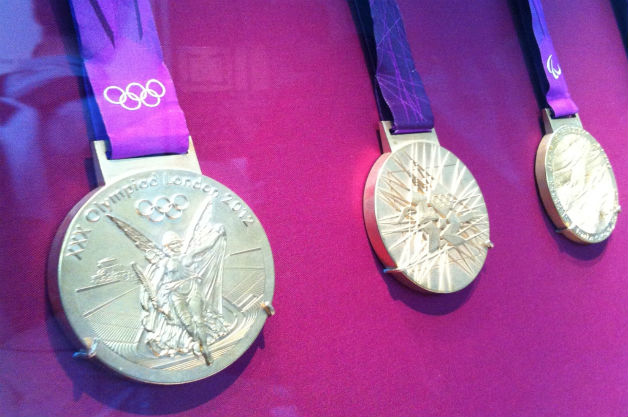“Inspired by the athletes who participated in the Olympics”
September 12 The Olympic Games showcases the courage, determination and national pride of all those who choose to compete, says Ariela St Pierre-Collins, 15, a Commonwealth Correspondent from the Caribbean island of Barbados.
The Olympic Games showcases the courage, determination and national pride of all those who choose to compete, says Ariela St Pierre-Collins, 15, a Commonwealth Correspondent from the Caribbean island of Barbados.
Eric Moussambani. Sarah Attar. Manteo Mitchell. Derek Redmond.
These are some the names of true Olympians, despite not necessarily being famous. Not because they came first in their events. Not because they won gold for their country.
Not even because they set world records in their respective sports. But because they embody the true spirit of the Olympian.
The pride I felt as a female watching Sarah Attar – one of two women who represented Saudi Arabia for the first time – cross the finish line of the Women’s 800m in London 2012 was enormous.
A man like Derek Redmond who was favoured to win the Men’s 400m sprint in Barcelona, in 1992, who tore his hamstring and hobbled, sobbing, across the finish line aided by his father, is a true role model of what a true Olympian athlete should be.
Another brave athlete, John Stephen Akhwari, represented Tanzania in the 1968 Summer Olympics in Mexico City. He was a marathon runner and during his event, he took a terrible fall and dislocated his knee. He finished dead last, an hour after the first runner finished, and by then there were only a few thousand left in the stadium to witness his heroic, but very late, finish.
He was later interviewed and asked why he continued running injured, when it was obvious that he wouldn’t win, to which he replied: “My country did not send me 5,000 miles just to start the race; they sent me to finish the race.”
Eric Moussambani won his heat in the men’s 100m freestyle in Sydney in 2000, but only due to the disqualification of the other two competitors. His home country, Equatorial Guinea, lacks swimming pools – and he paid out of his pocket to train in a hotel swimming pool of no more than 25m in length.
He was terribly slow, completing the course in 1:52:72 seconds, more than twice as long as his competitors would have taken. He still set a personal best and the new National Record for Equatorial Guinea.
In this summer’s 2012 London Olympics, American Manteo Mitchell who was running the first leg of his team’s 4x400m relay heat broke his left fibula at the 200m point but continued to run as if nothing happened, though by now in massive pain. He ended up running a time of 46.1 and his team qualified for the final.
He was afterwards diagnosed with a clean break in his fibula that would take 4-6 weeks to heal on its own. When asked why he kept going he answered simply with, “Even though track is an individual sport, you’ve got three guys depending on you, the whole world watching you. You don’t want to let anyone down.”
To me, that is what the Olympics are truly about: courage; national pride; a sense of determination and dedication, surpassing any obstacle, to achieve one’s best.
The Games are a celebration of youth and sports, and the fantastic opportunities that arise from that for young athletes from all over the world to come and represent their nations.
To embrace the opportunity presented and strive to finish what they came to accomplish, to do their very best despite being slow or having a broken leg, is inspiring to me.
As a young person, I am inspired by the athletes who participated in the Olympics to take up a sport, and pursue it, for the sake of the sport and the love of being active. The lessons I am taking away from the London 2012 Summer Olympic Games are far greater than I could ever have imagined.
I walk away from this summer feeling inspired and full of fresh new aspirations for myself as a young person, who – let’s face it – has as much chance of qualifying for the next Olympic games as the next person in a small Commonwealth country such as my own!
…………………………………………………………………………………………………………………
About me:
I am a Barbadian-Canadian and the founder of ‘Youth For Epic Change’, a charity aimed at raising funds for causes both locally and globally and inspiring teens in Barbados to be the catalyst for positive change. View my personal blog at www.unleashthepowerofone.tumblr.com.
…………………………………………………………………………………………………………………
Opinions expressed in this article are those of the author and do not necessarily represent the views of the Commonwealth Youth Programme. Articles are published in a spirit of dialogue, respect and understanding. If you disagree, why not submit a response?
To learn more about becoming a Commonwealth Correspondent please visit: http://www.yourcommonwealth.org/submit-articles/commonwealthcorrespondents/ …………………………………………………………………………………………………………………




